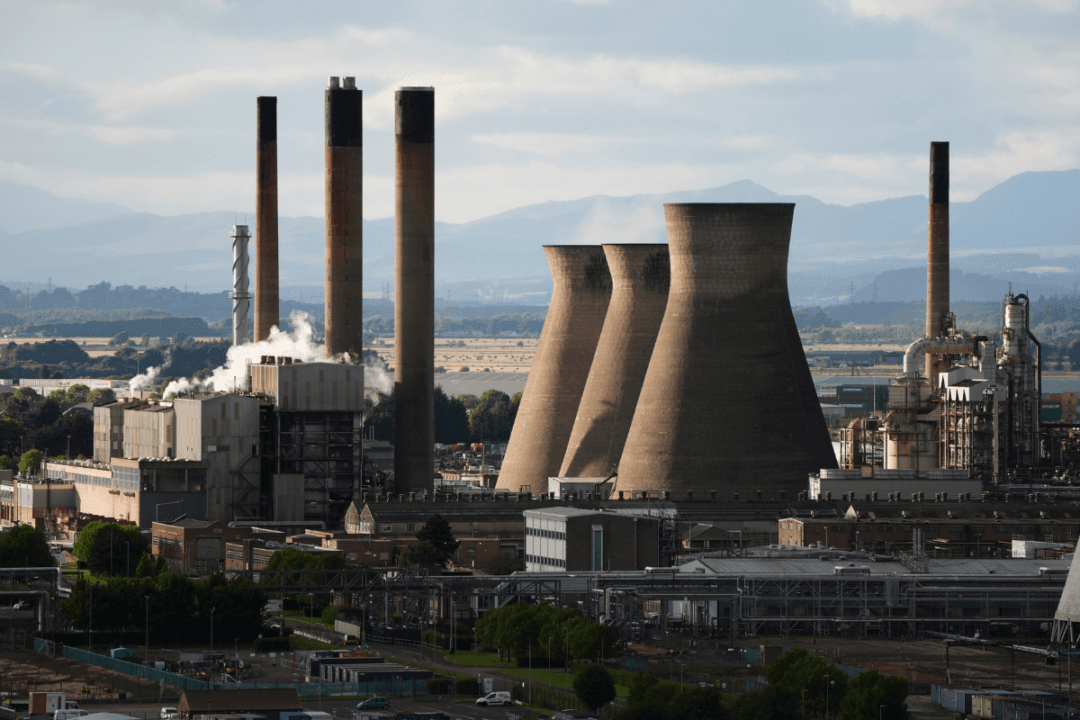Around 400 jobs will be lost when Grangemouth, Scotland’s only oil refinery, closes in the second quarter of 2025.
Petroineos confirmed on Thursday that it would cease refinery operations and would transition to a finished fuels import terminal and distribution hub, subject to consultation with staff.
The company, which is owned in partnership by British company Ineos and the Chinese state-owned PetroChina, had said last year that the site “faces significant challenges due to global market pressures and the energy transition.”
The number of staff is expected to fall from 475 to 75 in the next two years.
Grangemouth is the oldest of the UK’s six refineries and supplies 65 percent of Scotland’s oil products, including petrol and diesel.
The Scottish Government’s net zero and energy minister, Gillian Martin, said that she was disappointed in the decision. Martin said the Scottish Government has “consistently made clear our preference was for refining to continue as long as possible” and had been pressing shareholders for a positive decision “until the 11th hour.”
Energy Secretary Ed Miliband said Petroineos’s decision was “deeply disappointing.”
Petroineos Urged to Reconsider
On top of the £100 million package to be invested in local energy projects, Project Willow, worth an additional £1.5 million, will explore the site’s long-term future. Three green options being considered include focusing on low carbon hydrogen, clean eFuels, or sustainable aviation fuels.Both the UK and Scottish governments have also said they will be helping affected workers find new jobs.
On Friday, Scotland’s First Minister John Swinney met with unions and workforce representatives and urged Petroineos to reconsider its decision.
Swinney said, “I talk to the company, my ministers talk to the company, I’ve talked to the workforce.”
“I think the decision is premature and I would encourage Petroineos to consider what options there are to prolong the life of the refinery,” he said.
A spokesman for Petroineos said that in the last week, the refinery has lost around £381,000 per day, and absorbed total losses of £590 million.
The spokesman continued: “We have always communicated openly and directly with Scottish and UK governments, including sharing financial and operational details.
“Our intentions regarding the refinery and a timing envelope were communicated publicly as far back as November 2023.
“It is hard to conceive that any owner would be able or willing to sustain losses on this scale indefinitely and in the face of competitive pressure from newer, more modern facilities across Europe and elsewhere in the world.”

‘Industrial Vandalism’ for Net Zero
The union Unite called the closure “an act of industrial vandalism,” challenging the governments’ rationale for achieving carbon emissions targets while decimating key industries.Unite General Secretary Sharon Graham said: “This dedicated workforce has been let down by Petroineos and by the politicians in Westminster and Holyrood who have failed to guarantee production until alternative jobs are in place.
“This is now the last chance for this Labour government to show whether it’s really on the side of workers and communities.”
“The road to net zero cannot be paid for with workers’ jobs,” Graham said, pressing the government to ensure jobs are safeguarded.
Tata Steel’s Green Transition
The closure of the Scottish oil refinery comes the same week that the government agreed on a deal with Tata Steel to secure some jobs while the Port Talbot plant in Wales moves to a low-carbon system for producing steel.Despite the combined £1.25 billion commitment and promises to secure 5,000 jobs around the country, some 2,800 people will still lose their jobs at the plant when the last blast furnace is closed, because the electric arc system replacing the furnaces will take three years to construct and when completed, will need fewer workers.
Gary Smith, leader of the GMB union, warned that the push to lower emissions will come at a cost.
Smith said: “We really have to stop this decarbonisation through de-industrialisation. Serving up P45s to working class people, hollowing out working-class communities, is not the way to decarbonise this country.”
“There’s been a lot of talk about the transition to net zero, but the wind farms all around the coast are invariably built in China and Indonesia. Anywhere but the UK and they’re certainly not being built with UK components,” he added.
Smith called for an “honest debate” on how environment policy is impacting jobs, “because it’s costing us jobs.”







